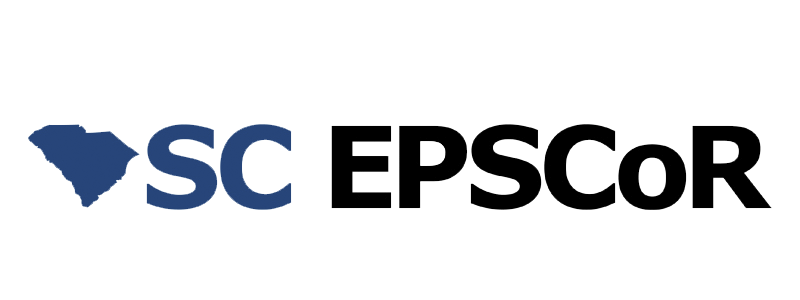- Home
- Develop a pipeline of well-trained students in Biomedical Devices and AI
Develop a pipeline of well-trained students in Biomedical Devices and AI
Biomedical and AI applications in undergraduate curricula – We are making progress towards our strategic plan goals of providing research experiences for undergraduate students during the summer and academic year. At PUIs and HBCUs, most of these students are engaged during the summer. In the first year, the ADAPT in SC faculty are planning to mentor 38 undergraduate students at participating universities and colleges – Benedict (10), Claflin (2), Clemson (1), CofC (9), FMU (4), SCSU (6), and Winthrop (6). Undergraduate students will begin labs for ADAPT in SC in the summer.
Curriculum development – Institutions are on schedule, and in some cases ahead of schedule, for the developing and implementing the new undergraduate courses. Achievements in the first year are focused on inserting AI/ML modules into existing curricula and creating new stand-alone courses.
To date, the following modules have been developed:
- Benedict: CSC 338 Introduction to Artificial Intelligence. Updated course with publicly available medical data. (Offered).
- SCSU: IBM Enterprise AI Training was infused into CS 150: Technology (non-computer science majors) and CS 151: Introduction to Computer Science (majors). This training was conducted in the course environment by the course instructors. 700+ students participated in this training with 100+ students receiving the IBM AI Badge. (Offered).
- Winthrop: DSCI 300 – Introduction to Data Science. Implemented a classification project on a biomedical dataset concerning predictions of Cesarean sections in expectant mothers. (Offered)
- Winthrop: BIOL222 – Principles of Cell and Molecular Biology Laboratory. Implemented a new assignment that included a micro lecture and emphasis on AI/ML use in the sciences and worksheet to complete while implementing the instruction of the use of BLAST and large dataset manipulation through NCBI. (Offered)
- Winthrop: BIOL403 – Ecology. Address the use of AI/ML in ecology by using BirdNET, an AI app, to identify birds for an assignment for the lab. (Offered)
- Winthrop: CHEM 204 – General Chemistry Laboratory. Piloted three activities that introduce students to commonly used models in AI: regression models, classification models and deep learning. (Offered)
The following new courses have been developed:
- Francis Marion University: STAT 340 -Introduction to Data Science. The course will introduce students to the process of extracting insight about the world through data. This includes collecting, organizing, and visualizing data, understanding statistical and machine learning methods, training these methods on a particular data set, and validating and testing the results. (Offered)
- College of Charleston: PHYS 412 Special Topics: AI and Medical Imaging. The course will have a focus on medical imaging acquisition and the use of AI in image analysis (Developed)
- College of Charleston ENGR 490 – Biosensors and Biomedical Microsystems. The course will introduce students to ML/AI techniques in biomedical devices – specifically AI-assisted microfluidic devices. (Developed)
The following new programs have been developed:
- The Citadel: At the undergraduate level, The Citadel proposed either an Applied Machine Intelligence Minor or AI/ML micro-credential sequence. In support of this objective, the Dean of the School of Engineering is in the curricular planning phases to approve a new AI/ML concentration in their Computer Engineering program. (Developed)

